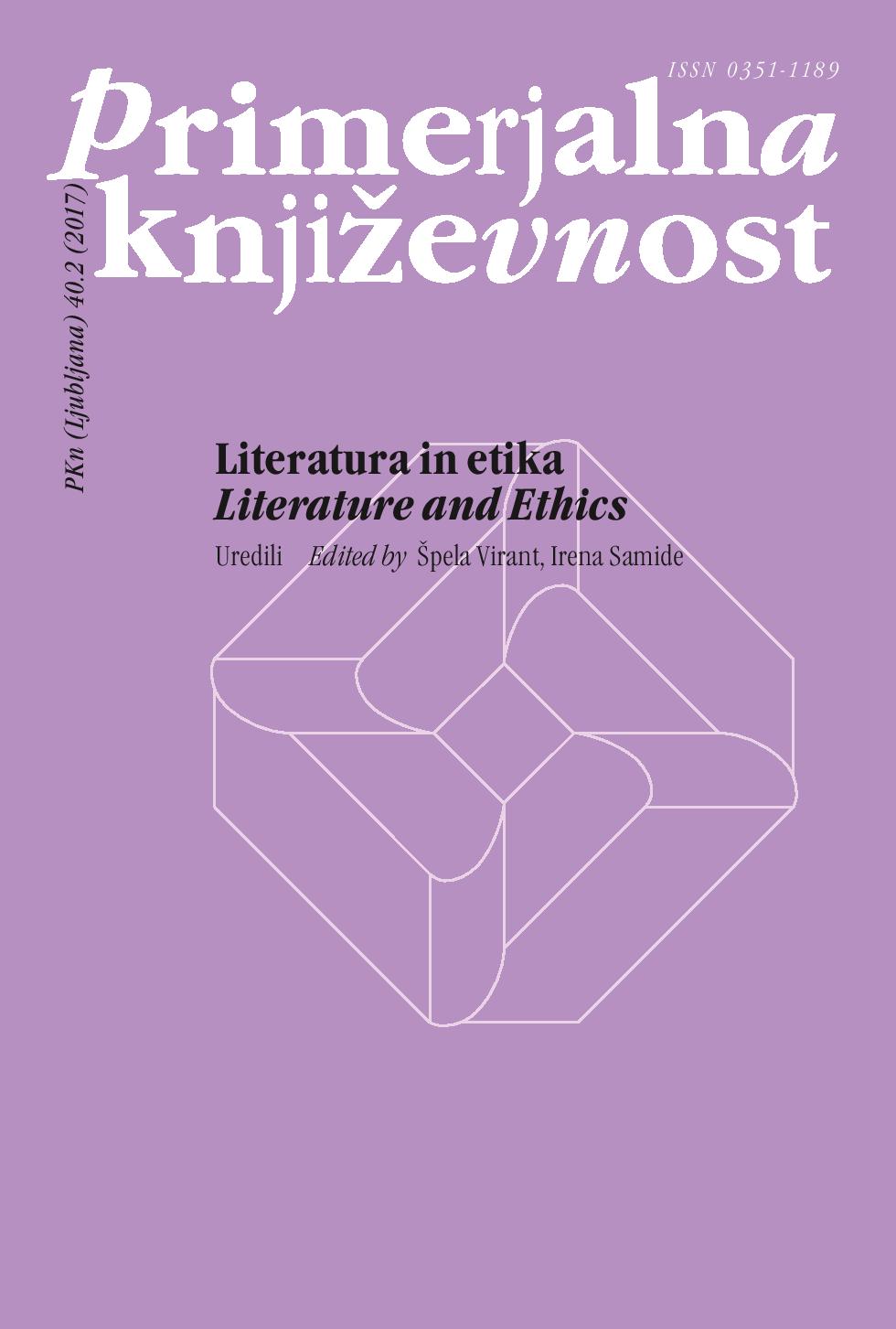Uncovering the Dark Truths of Society and the Unbreakable Power of the Good in Dickens’s Oliver Twist
Keywords:
literature and ethics, literary criticism, ethical turn, English literature, Dickens, Charles, Oliver Twist, good and evilAbstract
This paper presents Dickens’s novel Oliver Twist and focuses on literary technique of unveiling of contrasting relationship between criminal deeds of the old Jew Fagin and noble behaviour of the orphan Oliver. It analyses denouement of the story until the severest punishment and the triumph of good over evil. We are interested especially through what devices Dickens’s narrative text, written and read in specific contexts, thematises, problematises and consolidates specific moral values and norms. Dickens’s novel, through its narrativity, uncovers ethical concerns in the area of human values and responsibility in a capitalist society that is fraught with injustice, abuse, and overt or covert violence. It offers stories and reflections on the actions and characters of various individuals, which are adopted from real life, presenting them to the reader in order to challenge his values, moral judgments and ethical engagement. When we see the connection between acts and consequences, we see how literature, especially the novel with its narrativity, can effectively complement moral philosophy (Nussbaum). Whereas moral philosophy is tied to abstract language and deals with universals, narrative’s ability to imaginatively display the mental and spiritual states of its heroes engages our practical moral sense; we pursue the ethos that imbues the entirety of Dickens’s novel.References
Booth, Wayne. The Company We Keep: An Ethic of Fiction. Berkeley, CA: University of California Press, 1988.
Bowen, John. Other Dickens: Pickwick to Chuzzlewit. Oxford: Oxford University Press, 2000.
Carlyle, Thomas. The Life of Friedrich Schiller and the Life of John Sterling. London: Chapman and Hall, 1862.
Dickens, Charles. Oliver Twist. Prev. Oton Župančič. Ljubljana: Mladinska knjiga, 1956.
– – –. Oliver Twist. Ur. Kethleen Tillotson, uvod in opombe Stephen Gill. Oxford: Oxford University Press, 2008. (Oxford World’s Classics).
Doran, Robert. The Theory of the Sublime from Longinus to Kant. Cambridge: Cambridge University Press, 2015.
Duckworth, Jeannie. Fagin’s Children: Criminal Children in Victorian England. London in New York: Hambledon and London, 2002.
Eaglestone, Robert. »Ethical Criticism«. The Encyclopedia of Literary and Cultural Theory. Ur. Michael Ryan et al. Hoboken, NJ: Wiley-Blackwell, 2010. 581–586.
Ellison, David. Ethics and Aesthetics in European Modernist Literature. From the Sublime to the Uncanny. Cambridge: Cambridge University Press, 2004.
Gill, Stephen. »Introduction«. Charles Dickens. Oliver Twist. Ur. Kethleen Tillotson, uvod in opombe Stephen Gill. Oxford: Oxford University Press, 2008. vii–xxv. (Oxford World’s Classics).
Gordon, John. Sensation and Sublimation in Charles Dickens. New York: Palgrave Macmillan, 2011.
Jaeger, C. Stephen. Enchantment: On Charisma and the Sublime in the Arts of the West. Philadelphia: University of Pennsylvania Press, 2012.
Korthals Altes, Liesbeth. »Ethical Turn«. Routledge Encyclopedia of Narrative Theory. Ur. David Herman, Manfred Jahn in Marie-Laure Ryan. London in New York: Routledge, 2010. 219–224.
– – –. Ethos and Narrative Interpretation: The Negotiation of Values in Fiction. Lincoln in London: University of Nebraska Press, 2014.
Lankford, William T. »‘The Parish Boy’s Progress.’ The Evolving Form of Oliver Twist«. Modern Language Association 93.1 (1978): 20–32.
Lévinas, Emmanuel. Otherwise Than Being. Prev. Alphonso Lingis. Haag: Martinus Nijhoff, 1981.
MacIntyre, Alasdair. After Virtue. 2. izdaja. London: Duckworth, 1985.
Mangham, Andrew. »‘The Parish Boy’s Progress. God’s Truth.’ Kant, Mill and Moral Epistemology in Oliver Twist«. Literature Compass 9.11 (2012): 733–742.
Miller, J. Hillis. The Ethics of Reading: Kant, de Man, Eliot, Trollope, James, and Benjamin. New York: Columbia University Press, 1987.
Nussbaum, Martha. Love’s Knowledge: Essays on Philosophy and Literature. Oxford: Oxford University Press, 1990.
Phelan, James. Narrative as Rhetoric: Technique, Audiences, Ethics, Ideology. Columbus, OH: Ohio State University Press. 1996.
Ricoeur, Paul. Soi-même comme un autre. Paris: Seuil, 1990.
Rorty, Richard. Contingency, Irony, and Solidarity. Cambridge: Cambridge University Press, 1989.
Roth, Cecil (ur.). Anglo-Jewish Letters (1158–1917). London: Soncino, 1939.
Shaw, Philip. The Sublime: The New Critical Idiom. Abington: Routledge, 2006.
Slater, Michael. Charles Dickens. New Haven: Yale University Press, 2009.
Thackeray, William Makepeace. »Horae Catnachianae«. Fraser’s Magazine 9 (1839): 407–427.
Werner, Alex, in Tony Williams. Dickens’s Victorian London, 1839–1901. London: The Museum of London, 2011.


